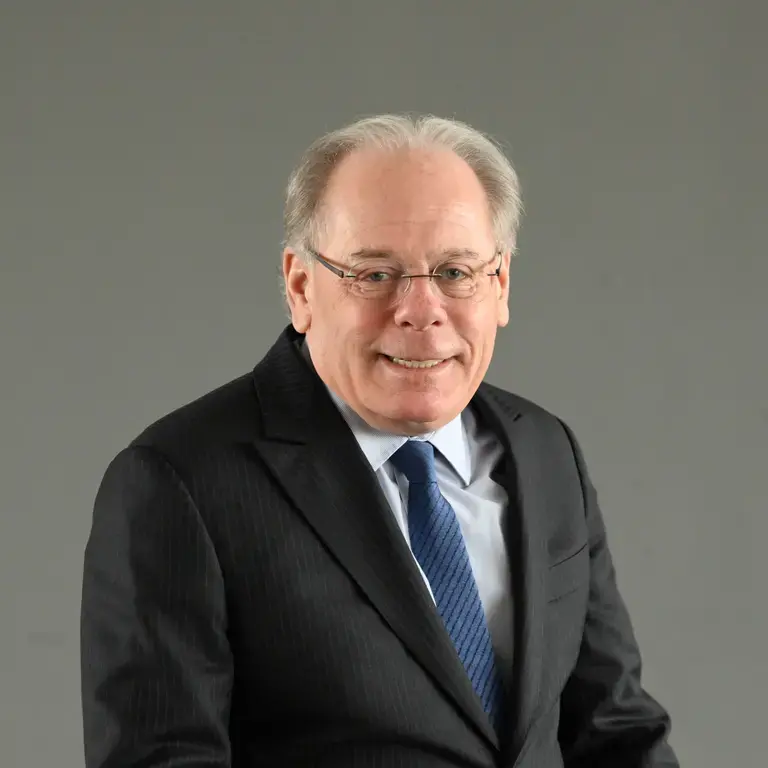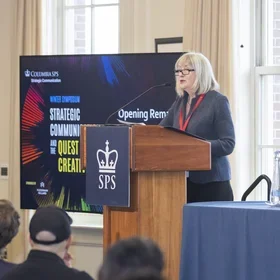By Steven Cohen, Ph.D., Director of the M.S. in Sustainability Management program, School of Professional Studies
In late January, I wrote about the meager 5% participation rate in “mandatory” residential organic waste recycling. In general, I am skeptical about recycling, but organic waste recycling has more potential for productive reuse than many other types of recycling. The goal of keeping organic waste out of landfills is critical and due to the increased cost of landfill “tipping fees” and waste transport, there may well be financial savings gained by recycling organic waste. Tomorrow, April 1, New York City will start enforcing residential organic waste recycling with fines. According to Liam Quigley in the Gothamist, fines will be small, but could grow:
“The fines start at $25 for buildings with eight or fewer units, and $100 for buildings with nine or more. The fines for big buildings top out at $300, so a large building that continually fails to comply could be on the hook for more than $15,000 a year. Sanitation inspectors are also not supposed to ticket buildings for the simple absence of a bin filled with compost on the day it’s supposed to be set out. They’ll only issue tickets if a property owner is mixing their organic waste with the rest of their household trash…The sanitation department has a team of inspectors who can go through your garbage to see if you’re complying with the rules. They issue fines to building owners who fail to comply with any of the department’s rules.”
The immediate enforcement effort will likely focus on large apartment buildings rather than individual homeowners. An enforcement effort focused on an elderly person living alone or a beleaguered and busy parent would probably generate serious political pushback. Fining landlords of large buildings would be more cost-effective and less politically difficult. A problem with enforcement within apartment buildings is that it is impossible to know which apartment dwellers are recycling their organic waste and which ones are ignoring the law.
For the next generation or so, these types of mandated recycling programs can bring both environmental and financial benefits. They also have the advantage of educating people about their personal consumption and waste disposal practices. Many people toss their garbage in a can and then assume it magically disappears and finds its way to solid waste heaven. In fact, it finds its way into groundwater, the ocean, rivers, and, due to methane released from landfills, into our atmosphere, where it warms the planet. The environmental education value of recycling is non-trivial but comes at a price. People don’t like being told what to do. But sometimes it’s important and worth the cost. When I was a kid, the issue in New York was littering, and signs went up all over the city telling us to toss our trash into litter cans and that “a cleaner New York is up to you.” It took a while, and we still see lots of litter, but there is less than there was in the 1960s. But as I observed in late January:
“In the long run, however, I am not optimistic about separating waste at its source. We’ve worked on recycling for a long time, and while there are some success stories (such as aluminum), the market for recycled waste is uneven, and stories about waste stream contamination are common. Eventually, we will need to invest in high-technology waste separation during waste processing. Using artificial intelligence, sensors, screens, and automation, we should mine the mixed waste stream for all the valuable resources it carries. Metals, paper, plastics, chemicals, and organic matter will be removed from the waste stream for processing and sale. Instead of mining the planet for resources, we will mine our garbage. While this technology is not yet commercially viable, it is under development. The capital costs of these facilities would be funded in part by forgone waste tipping fees and lower waste transport costs.”
The issue of urban waste management is central to the establishment of an environmentally sustainable city. It is clear that, here in New York City, there has been a concerted effort over many years to improve the city’s waste management system. This is a large city, we generate lots of garbage, and keeping this city clean is a massive and complex management challenge. Sometimes, the challenge stems from the behavior of my fellow New Yorkers. We New Yorkers tend to be busy, impatient, overstimulated, and, perhaps for those reasons, slow to change and “too busy to recycle.” Before New York City mandated residential organic recycling, the city mandated commercial organic recycling. In a 2021 report by the Institute for Local Self Reliance, Brenda Platt and Sophia Jones observed that:
“In 2013, then-mayor Michael Bloomberg committed to doubling the organics recycling rate by 2017. In December 2013, NYC passed its Commercial Organic Waste law (Local Law 146), mandating specific large-scale generators to arrange for the recycling of their organic materials or employ department-approved methods to process the material themselves. However, according to a 2017 Mayor’s Management Report, organics recycling had only grown from a 15.1% capture rate in 2013 to 17.4% in 2017.”
While commercial organic recycling rates are higher than residential ones, neither can really be considered successful. We can do better than 5% or 17%, but New Yorkers do not seem particularly motivated to recycle. A focus on motivation is important, and the beginning of enforcement provides the motivational “stick” to the compliance equation. What is missing is a large-scale effort to persuade New Yorkers to participate. We need some kind of carrot to balance the enforcement stick. Perhaps it’s as simple as explaining the damage caused by landfilling organic waste. We need to educate New Yorkers about the environmental cost of dumping organics in landfills. We should also publicize the economic value of compost and biogas produced by organic waste. If the program began to generate revenues or save expenses, that too should be publicized. Finally, New Yorkers need to learn what organic waste consists of and the practical steps that need to be taken to recycle it.
As a practice-oriented academic, I’ve long been interested in this issue, dating back to the turn of the 21st century, when we closed our last landfill at Freshkills in Staten Island. Back then, I joined with several Columbia colleagues and wrote a report entitled After Freshkills, which discussed waste management alternatives for New York. A quarter century later, I remain heavily into garbage. So much so that on April 17th at 6:00 PM at Columbia University’s Italian Academy (1161 Amsterdam Avenue in New York City), I am moderating a panel entitled “Transforming Urban Waste: Policy, Innovation, & the Path to Sustainability.” This event is free and open to the public; tickets and more information can be found here. The panel is co-sponsored by the Research Program in Sustainability Policy and Management of Columbia’s Climate School, the Master of Science in Sustainability Management program and the Master of Science in Sustainability Science program at Columbia’s School of Professional Studies, and the Master of Public Administration in Environmental Science and Policy program of Columbia’s School of International and Public Affairs.
The event will be opened by Alexis Abramson the visionary new dean of Columbia’s Climate School and the panel includes:
- Edward Grayson, the 44th Commissioner of the New York City Department of Sanitation (DSNY) where he served from 2020-2022. Commissioner Grayson began his career in 1999 as a Sanitation Worker and rose steadily through the ranks over his 23 years of service.
- Jamie Lowrey, the Director of Strategic Operations at Circular Services, where he leads projects to improve recycling facility performance and supports business growth across the recycling and organics divisions.
- Samantha MacBride, an Adjunct Assistant Professor at the Marxe School of Public and International Affairs at Baruch College, CUNY. Her research focuses on municipal operations, public management, and measurement and technology in environmental governance. She worked for 25 years in sanitation and wastewater treatment and is now an Advisor to Earth Matter, a community compost organization in NYC.
- Christoph Meinrenken, a Professor of Practice in Columbia's Faculty of Professional Studies, a Principal Investigator at the Climate School, the Academic Director of the M.S. degree in Information & Knowledge Strategy (IKNS), and an Affiliate of the Foundations of Data Science Center at the Data Science Institute. Meinrenken also co-chairs the Columbia University Seminar on Complexity Science, Modeling, and Sustainability. Dr. Meinrenken is an expert in Life Cycle Assessment and enterprise-scale product analytics.
Our panel will discuss the goals and progress made in recycling organic waste in New York City and the challenges of compliance with mandated recycling. We will also discuss the environmental impacts of waste disposal and hear about the new technologies that are being developed and are already in use to reduce these impacts. In the long run, we need to develop a circular economy powered by renewable energy that enables all the materials we use to be reused rather than dumped into a hole in the ground. The circular economy will require capital, technology, and political will to implement. Market forces and public infrastructure investment will drive this transformation, but none of this is automatic, and none of it will be rapid. Nevertheless, in my view, our economic, political, and environmental well-being depends on making progress toward the goal of circularity.
Views and opinions expressed here are those of the authors, and do not necessarily reflect the official position of Columbia School of Professional Studies or Columbia University.
About the Event
Please find tickets and more information about the panel event, "Transforming Urban Waste: Policy, Innovation, & the Path to Sustainability," here. This event is free, is open to the public, and will be held from 6:00 - 9:00 pm ET on Thursday, April 17th in Columbia University's Italian Academy (1161 Amsterdam Avenue New York, NY 10027)
About the Program
The Columbia University M.S. in Sustainability Management program offered by the School of Professional Studies in partnership with the Climate School provides students cutting-edge policy and management tools they can use to help public and private organizations and governments address environmental impacts and risks, pollution control, and remediation to achieve sustainability. The program is customized for working professionals and is offered as both a full- and part-time course of study.



